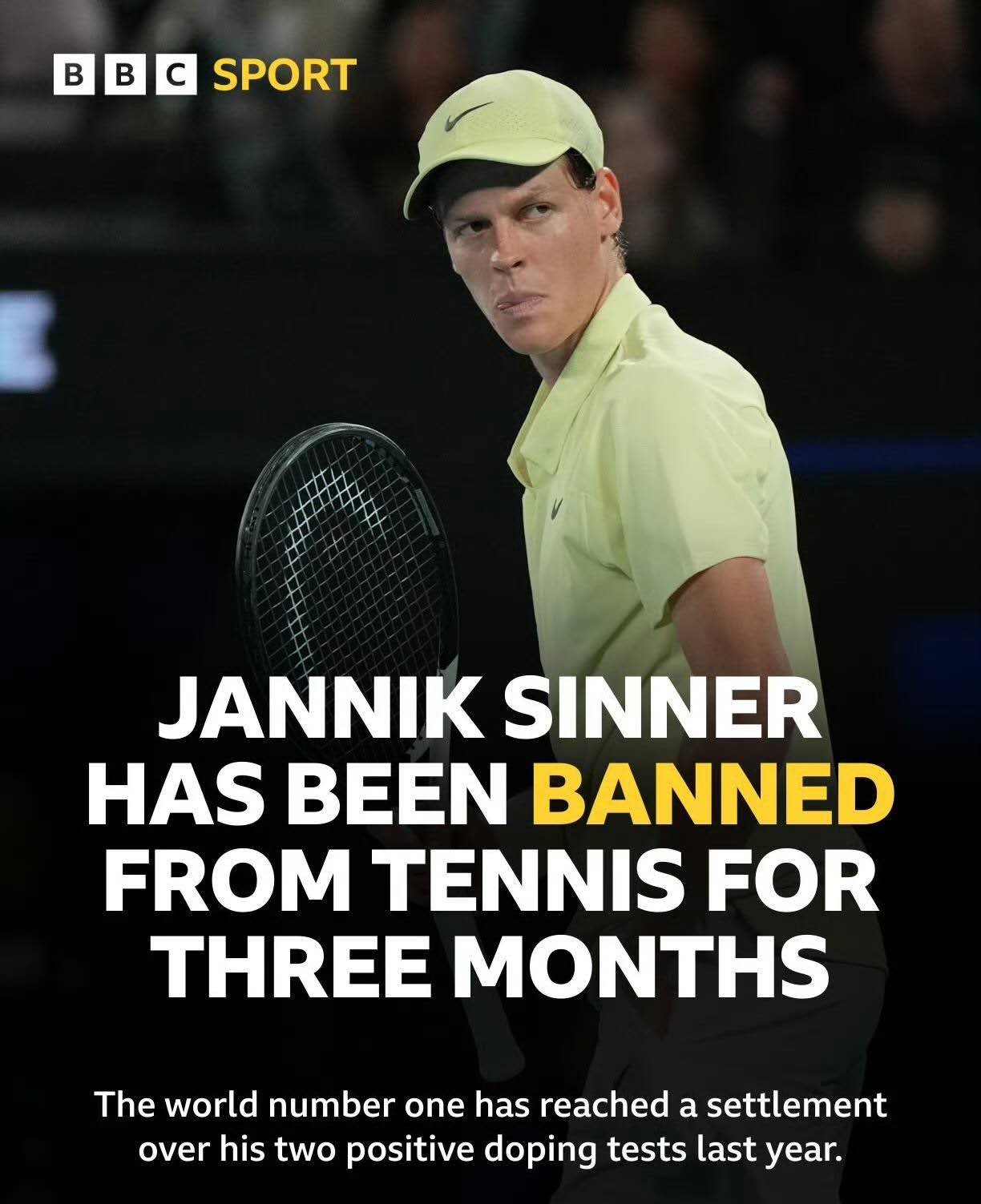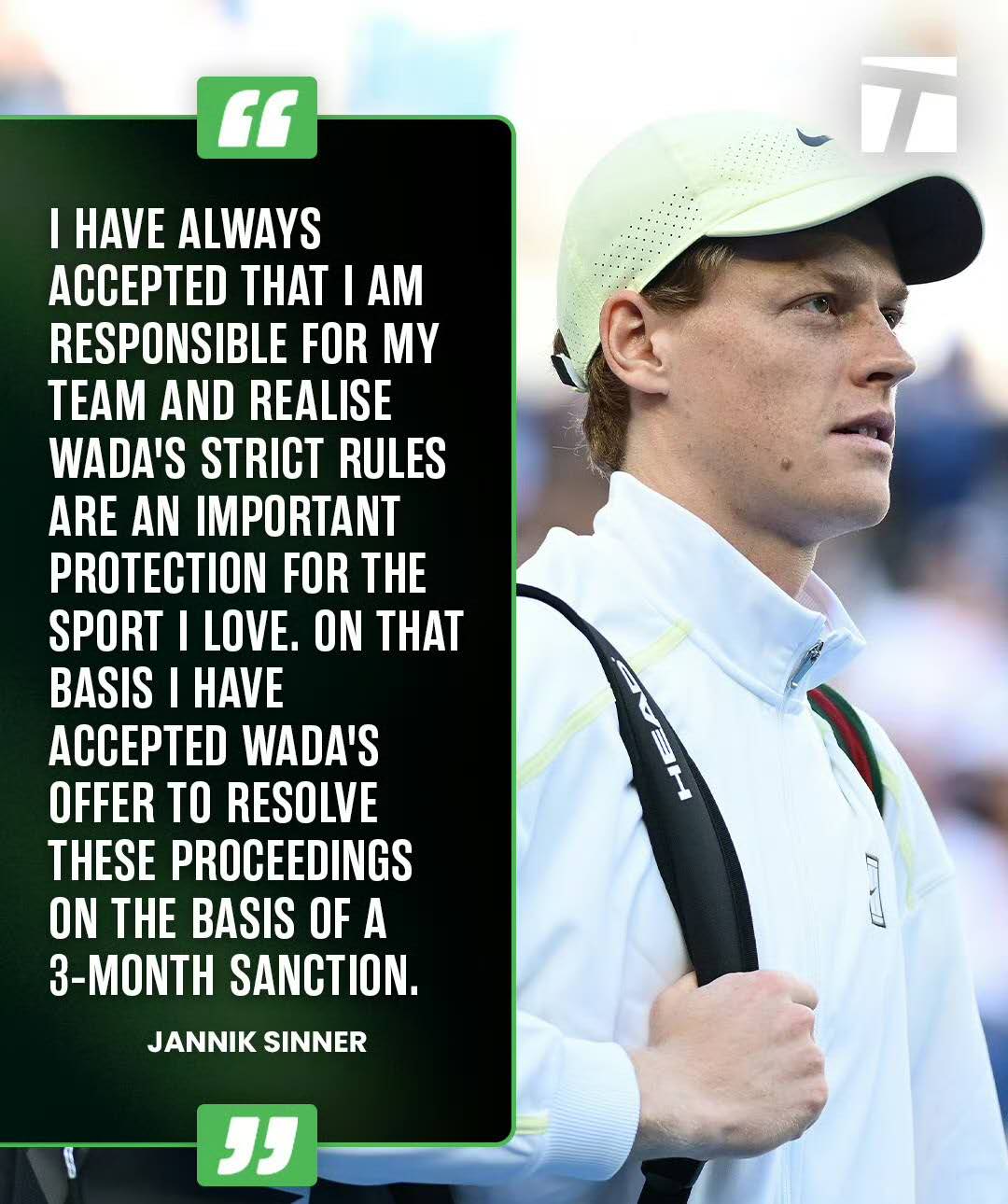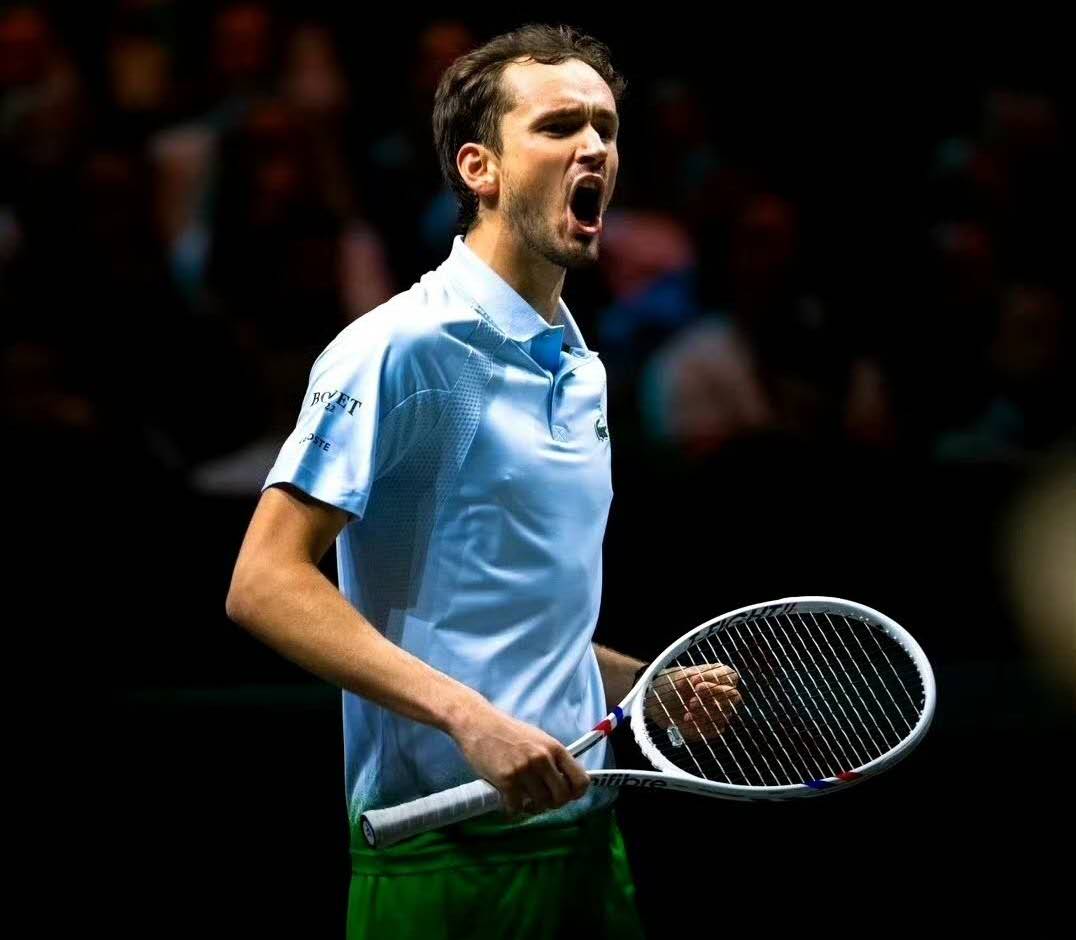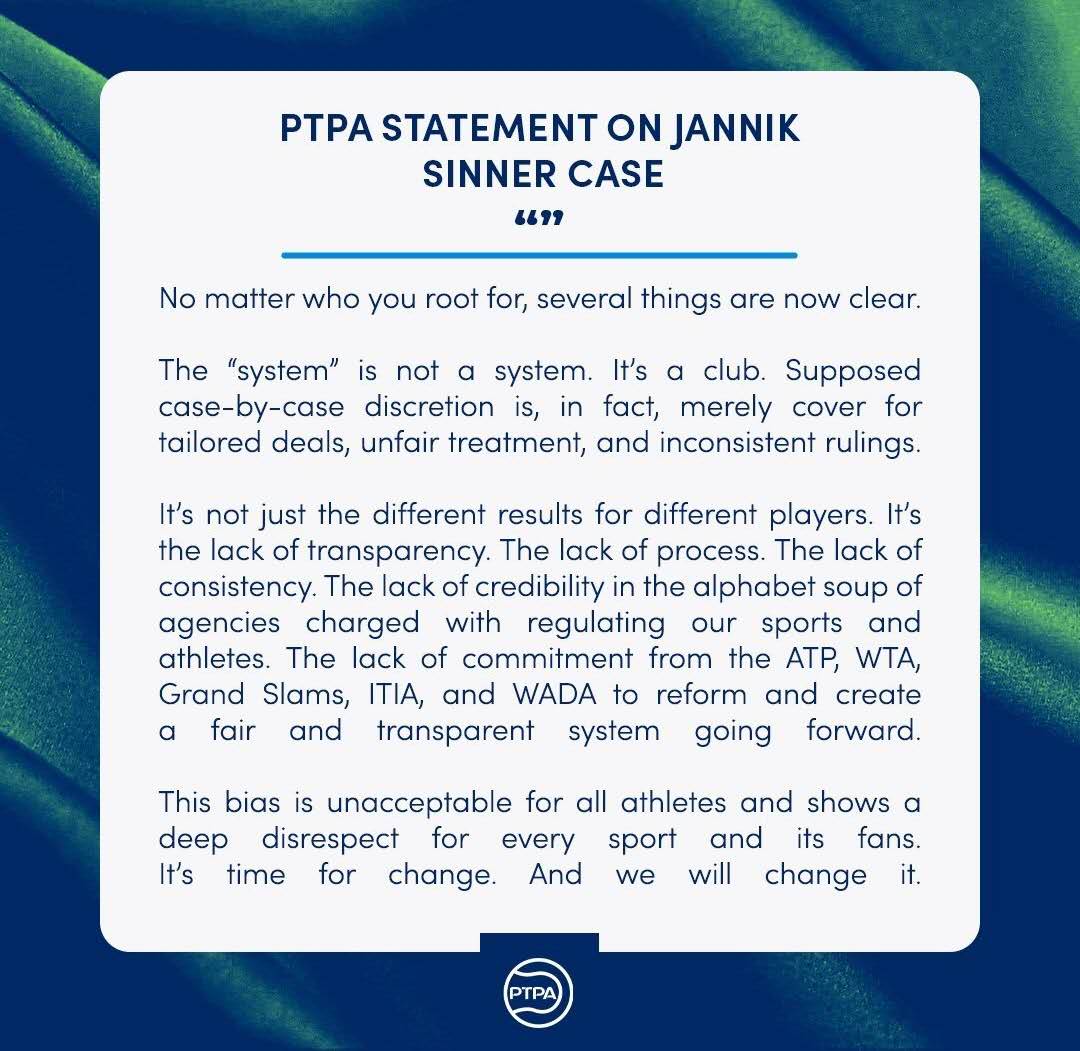Sinner's ban was protested: he had the privilege to negotiate and the others did not, which is a huge injustice!
Yesterday, there was good news and bad news in tennis! The good news is that world No. 1 Sinner has finally been banned, but the bad news is that Sinner has only been banned for three months and won't miss any Grand Slam tournaments! As a result, a new round of dissatisfaction and protests has been triggered in the tennis world!

In a statement issued yesterday, WADA said it had settled with Sinner, who voluntarily accepted a three-month ban for a period of reasonableness, and dismissed Sinner's case.
As soon as the news came out, many industry media people used "unscathed" and "like chicken ribs" to describe Sinner's ban. This is because, although Sinner has been banned for three months, it is worth noting that this punishment does not involve any points and prize money, and Sinner will not miss any Grand Slam tournaments due to the suspension, and due to his current points advantage, when Sinner returns after the ban expires, he will most likely be "world first".
Regarding Sinner's ban, netizens raised several questions: First, did Sinner choose the most convenient time for the ban? Second, why did Sinner, who had previously claimed his innocence, suddenly voluntarily accept a three-month ban instead of continuing to defend himself in the court of international sports arbitration? Third, it has been revealed whether Sinner has been banned for 90 days (or more), which would mean he will miss both the French Open and Wimbledon Grand Slam tournaments if the hearing is scheduled for April. And the sudden ban did not allow him to miss a single Grand Slam. Fourth, is there a deal behind the whole thing that doesn't stand up to the table? Because WADA had previously taken a tough stance (proposing a 1-2 year ban), why did it suddenly agree to settle? ”

However, according to the announcement issued by WADA yesterday, the doping regulations mentioned can actually answer some questions. First, according to Article 10.8.2 of the World Anti-Doping Code: "If an Athlete or other person voluntarily admits to a violation of the Anti-Doping Rules after being found by an Anti-Doping Organization to have violated the Anti-Doping Rules and agrees to accept the consequences at the sole discretion of the Anti-Doping Organization and the World Anti-Doping Agency, then: (a) the applicability of the alleged Anti-Doping Rule Violation in accordance with Articles 10.1 to 10.7 of the Anti-Doping Organization and the World Anti-Doping Agency, The degree of fault of the athlete or other person and the speed with which the athlete or other person admits the violation, the period of suspension may be shortened by the athlete or other person. ”
It can be seen that if an athlete takes the initiative to admit and accept the fact of making a mistake, it can indeed shorten the ban period to a certain extent. This explains why WADA's one-two-year ban ended up being only three months, although there is still debate about the criteria for determining those three months and whether there was a trade.

No, just yesterday, Medvedev expressed strong displeasure with the Sinner case in his post-match interview, arguing that, unlike other doping victims, Sinner has a clear negotiable privilege, which is a huge injustice for many. However, he also quipped, "Hopefully this will become a special case in the future, and everyone can do that." ”
"I hope that from now on, everyone will be able to negotiate with WADA and defend themselves like Sinner. If WADA tells you that we find out that you have a problem and need a two-year ban, you just have to answer, 'No, I just want to be banned for a month'. I hope it's a precedent, otherwise it's too weird. Medvedev said.

Having the same sentiment as Medvedev is the PTPA players' union created by Djokovic. Yesterday, the PTPA also issued an announcement on the Sinner case, commenting that such a punishment is a "collapse of credibility" and that the doping management system is "fair in its appearance".
"Whichever side you are rooting for, it is clear that the so-called 'anti-doping system' is just a club of privilege. The so-called "case-by-case discretion" is nothing more than a fig leaf for tailor-made privilege dealings, differential treatment and contradictory adjudication. The problem is not only that different players have been punished differently, but that the system is riddled with a lack of transparency, confusing procedures, inconsistent standards, and the collapse of the credibility of the various regulatory bodies (ATP, WTA, Grand Slam, ITIA, WADA) that have failed to reform their commitment to a fair and transparent new system. This systematic bias is a violation of all athletes, and a fundamental desecration of sportsmanship and all fans and viewers around the world. Change is needed, and we will make it happen. ”

And many netizens are also indignant about this incident on social media! Some netizens said, "Unbelievable! The most surprising thing now is the huge contrast between the front and back of WADA, which puts the inconsistencies on the table without concealment, and the real reason is unknown, but it is the core. Some netizens said, "The settlement was actually proposed by WADA? So do you think you can't win the appeal of the previous ban of 1-2 years? Or is there a dirty deal? WADA has made too many jokes over the years, and I don't feel that it is any more authoritative than ITIA. ”
In fact, there are always many fans who will ponder the question: "Will Sinner's ban do more good than good for tennis or do more harm than good?" "In my opinion, Sinner's ban must have more advantages than disadvantages, because on the one hand, as the world No. 1, whether he intentionally or not, if the punishment for him is just a "drop in the bucket", it will play a huge role in "moral demonstration", and it is also unfair to other doping players; On the other hand, the Sinner case has a profound impact on the "sporting image of tennis", and it is really very sad if a player can "get away with it" after being contaminated with doping, and then many people still excuse him with his grievances and suffering. Perhaps, the most important thing Sinner should do is to resolutely choose to retire and retire from tennis singles for life like Hingis did back then, then maybe he still has a trace of respectability!(Source: Tennis Home Author: Lu Xiaotian)







 Links
Links
 Contact
Contact
 App
App


